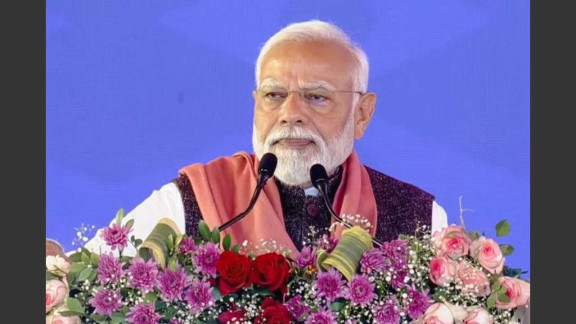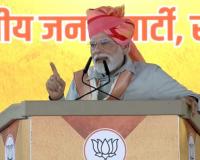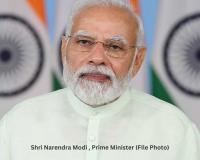India Will No Longer Tolerate Proxy War Through Terrorists, Says PM Modi

Bhopal, May 31 – Prime Minister Narendra Modi, addressing a massive women empowerment rally in Bhopal on the occasion of the 300th birth anniversary of Lokmata Devi Ahilyabai Holkar, delivered a strong message against cross-border terrorism, stating that India will no longer tolerate proxy wars executed through terrorists. He warned that any provocation will now be met with overwhelming force, adding that those aiding terrorism will face serious consequences.
Modi referenced the recent 'Operation Sindoor' launched by Indian armed forces in response to the killing of 26 civilians in Pahalgam earlier this month. He said that this operation was the largest and most successful counter-terrorism strike in Indian history, targeting nine terrorist bases deep inside Pakistan and Pakistan-occupied Kashmir, including those of Jaish-e-Mohammed and Lashkar-e-Taiba.
Describing the cultural symbolism of the operation’s name, the Prime Minister stated that 'Sindoor', traditionally associated with marital commitment and strength in Indian culture, was chosen to reflect both national pride and feminine power. He noted that in Hindu tradition, even Lord Hanuman is depicted applying sindoor, and the substance is used in the worship of powerful deities, symbolizing courage and valor.
As per agency report, Modi emphasized that the Pahalgam massacre was not just an attack on Indian lives but a direct assault on the country's culture and an attempt to create social division. He said the terrorists had specifically targeted individuals based on their faith, thereby challenging the unity and integrity of the nation.
Highlighting the role of women in Operation Sindoor, Modi praised the Border Security Force (BSF) for its critical contribution, mentioning that women personnel were deployed in significant numbers along the borders from Jammu to Gujarat. These personnel, he said, responded bravely to enemy fire and played key roles from command centers to combat zones, dismantling terrorist infrastructure.
He further stated that Indian daughters are now trusted to serve the nation with courage and discipline—from schools to battlefields—and that their contribution in anti-Naxal operations and in securing the borders is a testament to their growing role in national defense.
During his address, the Prime Minister also spoke about the political representation of women, noting that 75 women have been elected to the current Lok Sabha and reaffirming his commitment to increasing this number. He mentioned the passage of the Nari Shakti Vandan Adhiniyam, which reserves one-third of seats in Parliament and state assemblies for women, as a historic milestone aimed at strengthening women’s role in governance.
He pointed to the remarkable achievement of Indian Navy officers Lieutenant Commander Rupa A. and Lieutenant Commander Dilna, who recently completed a 250-day global circumnavigation voyage aboard a wind-powered sailboat, showcasing Indian women's capability in the most challenging conditions.
Modi drew a connection between this spirit of women empowerment and the legacy of Ahilyabai Holkar, who protected Indian temples and spiritual sites during her reign in the 18th century. He described her as a guardian of India’s cultural and spiritual heritage and aligned her vision with the government’s citizen-centric philosophy, "Nagrik Devo Bhava."
In conclusion, the Prime Minister commemorated the birth anniversary of Ahilyabai Holkar by unveiling a commemorative postage stamp and a ₹300 coin in her honor, celebrating her contributions to Indian society and drawing inspiration from her example in contemporary governance and national defense.






